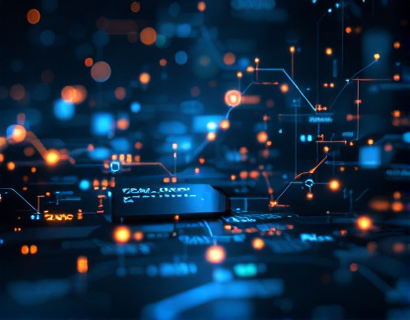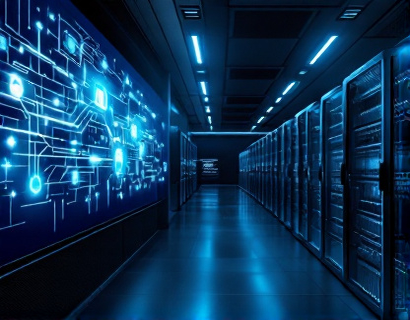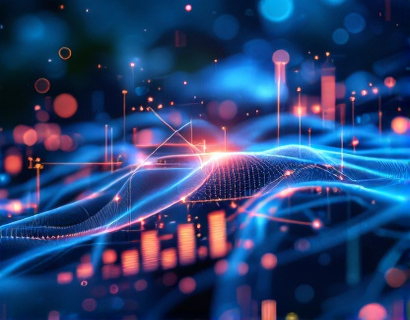Navigating the Ucosystem: A Beginner's Guide to Understanding Interconnected Complexity and Its Benefits
The Ucosystem, a term that encapsulates the intricate web of interconnected systems and processes, can seem daunting at first glance. However, understanding and navigating this complex landscape is crucial for individuals aiming to thrive in today's interconnected world. This guide aims to demystify the Ucosystem, breaking down its components and highlighting its key benefits, providing clear explanations and practical insights for effective navigation.
To begin, it's essential to grasp the fundamental concept of interconnectedness. The Ucosystem is not a single entity but a network of systems, each influencing and dependent on the others. These systems can range from technological networks and social structures to ecological and economic frameworks. The interconnected nature of these systems means that changes in one area can have ripple effects across the entire network.
Understanding the Components of the Ucosystem
The first step in navigating the Ucosystem is to identify and understand its key components. These components can be categorized into several broad groups: technological, social, ecological, and economic systems.
Technological systems include the digital infrastructure that underpins modern life, such as the internet, smartphones, and artificial intelligence. These technologies facilitate communication, information exchange, and innovation, but they also introduce new challenges such as data privacy and cybersecurity.
Social systems encompass the relationships and interactions among individuals and groups. This includes social networks, cultural norms, and institutions like education and governance. Understanding social dynamics is crucial for navigating the Ucosystem, as human behavior and social structures play a significant role in shaping the outcomes of interconnected systems.
Ecological systems refer to the natural environments and the biological processes that sustain life on Earth. These systems are increasingly impacted by human activities, and their health is vital for the well-being of all species. Climate change, biodiversity loss, and resource depletion are pressing issues that require a holistic approach to address their interconnected nature.
Economic systems involve the production, distribution, and consumption of goods and services. Globalization has made economies more interconnected, leading to both opportunities and challenges. Understanding economic interdependencies is essential for making informed decisions in a global market.
By recognizing these components and their interconnections, individuals can better navigate the complexities of the Ucosystem. Each component influences and is influenced by the others, creating a dynamic and ever-evolving landscape.
Key Benefits of the Ucosystem
Despite its complexity, the Ucosystem offers numerous benefits that enhance our lives and drive progress. Some of the key advantages include:
- Innovation and Creativity: The interconnected nature of the Ucosystem fosters collaboration and the exchange of ideas, leading to groundbreaking innovations. For example, the integration of technology and biology has given rise to fields like bioinformatics and synthetic biology.
- Efficiency and Resource Optimization: Interconnected systems allow for better resource management and efficiency. Smart grids, for instance, use data from various sources to optimize energy distribution, reducing waste and improving reliability.
- Resilience and Adaptability: A well-connected Ucosystem can better withstand and recover from disruptions. Diverse systems provide multiple pathways and solutions, enhancing resilience. For instance, a diverse ecosystem is more resistant to the impacts of climate change.
- Enhanced Decision-Making: Access to a wealth of interconnected data and insights enables more informed and strategic decision-making. This is particularly valuable in fields like healthcare, where data from various sources can improve patient outcomes.
- Global Collaboration: The Ucosystem facilitates international cooperation on global challenges. Issues like pandemics, climate change, and economic crises require collaborative efforts, and interconnected systems enable more effective coordination and response.
These benefits highlight the importance of understanding and effectively navigating the Ucosystem. By leveraging the interconnected nature of systems, individuals and organizations can drive positive change and achieve greater success.
Practical Insights for Navigating the Ucosystem
Navigating the Ucosystem effectively requires a combination of knowledge, skills, and a mindset that embraces complexity. Here are some practical insights to help individuals navigate this intricate landscape:
First, cultivate a curiosity-driven mindset. Embracing curiosity encourages continuous learning and adaptation, which are essential in a rapidly changing Ucosystem. Stay informed about emerging trends and developments across various domains, and be open to exploring new ideas and perspectives.
Second, develop interdisciplinary thinking. The interconnected nature of the Ucosystem means that solutions often lie at the intersection of multiple disciplines. For example, addressing climate change requires insights from environmental science, economics, and social policy. Cultivating the ability to think across disciplines can lead to more comprehensive and effective solutions.
Third, build a robust network. Connections with others are a vital part of the Ucosystem. Engage with diverse groups and communities to expand your network and gain different viewpoints. Networking can provide access to resources, opportunities, and collaborative partnerships.
Fourth, master digital literacy. In an age where technology plays a central role, digital literacy is crucial. Understand how to use digital tools and platforms effectively, and be aware of the implications of digital technologies on society and the environment.
Finally, adopt a systems thinking approach. View problems and opportunities through the lens of interconnected systems. Consider the broader context and the potential ripple effects of your actions. This approach helps in making more informed and strategic decisions.
By implementing these insights, individuals can navigate the Ucosystem more effectively, capitalizing on its benefits and mitigating its challenges.
Case Studies: Real-World Applications of Ucosystem Navigation
To illustrate the practical application of navigating the Ucosystem, let's examine a few real-world case studies:
One notable example is the response to the COVID-19 pandemic. The pandemic highlighted the interconnected nature of global health, economics, and social systems. Governments, health organizations, and researchers collaborated across borders to share data, develop vaccines, and implement public health measures. This collaborative approach, rooted in a systems thinking mindset, was crucial in managing the crisis and mitigating its impacts.
Another example is the development of smart cities. Smart cities integrate various technological, social, and ecological systems to create more sustainable and livable urban environments. For instance, Amsterdam's smart city initiatives use data from sensors and IoT devices to optimize traffic flow, reduce energy consumption, and enhance public safety. This holistic approach demonstrates how interconnected systems can lead to significant improvements in urban living.
These case studies underscore the importance of understanding and navigating the Ucosystem. By recognizing the interdependencies and leveraging the benefits of interconnected systems, individuals and organizations can drive meaningful change and innovation.
Conclusion
Navigating the Ucosystem is a journey that requires curiosity, interdisciplinary thinking, and a systems-oriented approach. By understanding the complex components and benefits of interconnected systems, individuals can better navigate this landscape and capitalize on its advantages. The practical insights and real-world examples provided in this guide offer a foundation for effective navigation, empowering individuals to thrive in an increasingly interconnected world.
As we continue to face global challenges and opportunities, the ability to navigate the Ucosystem will become increasingly valuable. Embrace the complexity, stay informed, and foster connections to succeed in this dynamic and interconnected world.










































